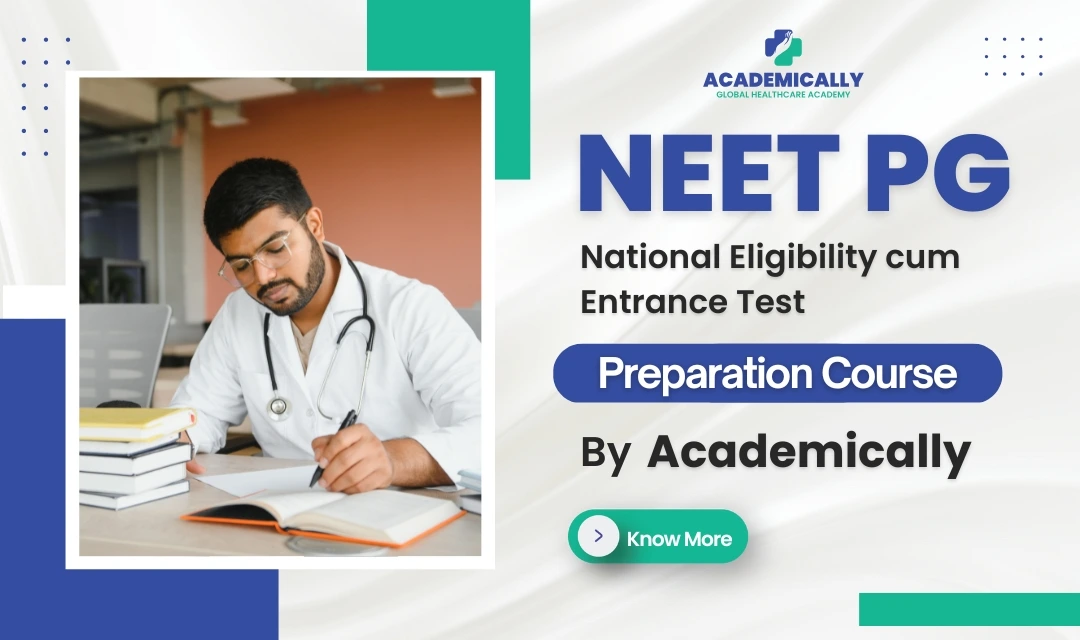With multiple announcements, shifting timelines, and uncertainty around the National Exit Test (NExT), NEET PG aspirants have been looking for clarity regarding the 2026 exam cycle. The latest official update from the National Medical Commission (NMC), combined with recent policy discussions, finally provides a clear picture.
This blog compiles the latest news, NExT transition updates, NEET PG 2026 eligibility, exam pattern, and what students can expect for the upcoming admission year.
NExT Transition: Latest Official Update
According to the latest statement from the National Medical Commission, NExT will NOT be implemented immediately. The commission confirmed that the exam will be delayed for at least the next 3–4 years.
Why the delay?
- Strong opposition from medical students
- Concerns raised by resident doctors’ associations and the Indian Medical Association (IMA)
- Uncertainty regarding structure, timing, and implementation
- Risk of disrupting MBBS final-year schedules and PG admission cycles
What NMC plans instead
- Conduct mock NExT examinations for the next 3–4 years
- These will be fully funded by NMC
- Aim: evaluate feasibility, collect feedback, and refine the system before rollout
For the foreseeable future, NEET PG will continue as the standard entrance examination for MD/MS/PG Diploma courses. NExT will not impact students appearing in 2026.

NEET PG 2026 Eligibility Criteria
Students must meet the following conditions to appear for the 2026 exam:
1. MBBS Qualification
A recognized MBBS degree or provisional passing certificate from an NMC-approved institution.
2. Internship Completion
One-year compulsory rotatory internship must be completed by the cutoff date, expected to be 31 March 2026 (subject to official confirmation).
3. Medical Registration
Provisional or permanent registration with:
- State Medical Council, or
- National Medical Commission
4. No Age or Attempt Limit
NEET PG does not enforce an upper-age limit or maximum number of attempts.
NEET PG 2026 Exam Pattern
The exam continues to follow the format introduced in 2025, focusing on clinical reasoning and time management.
Structure
- Mode: Computer-Based Test (CBT)
- Questions: 200 multiple-choice questions
- Total Marks: 800
- Duration: ~3 hours 30 minutes
Marking Scheme
- +4 marks for correct answers
- –1 mark for incorrect answers
- 0 marks for unattempted questions
Sectional Timing
A major change introduced recently is section-locking:
- The exam is divided into multiple sections
- Each section has a fixed time limit
- Students cannot revisit a section once it closes
This requires focused, section-specific time management during preparation.
Language
- English only
NEET PG 2026 Syllabus Overview
The syllabus remains unchanged and continues to be based on the MBBS curriculum:
Pre-Clinical
- Anatomy
- Physiology
- Biochemistry
Para-Clinical
- Pathology
- Microbiology
- Pharmacology
- Forensic Medicine
- Community Medicine
Clinical
- General Medicine
- General Surgery
- Obstetrics & Gynaecology
- Pediatrics
- ENT
- Ophthalmology
- Orthopaedics
- Dermatology
- Psychiatry
- Radiology
Clinical application-based questions are expected to remain dominant.
NEET PG vs NExT: What 2026 Aspirants Should Know
Since NExT is not being implemented immediately, here is what students need to understand:
| Feature | NEET PG | NExT |
| Purpose | PG entrance exam | Licensing + PG entrance (future) |
| Implementation | Active in 2026 | Delayed 3–4 years |
| Exam Format | Single MCQ exam | Theory + Practical/Clinical |
| Impact | For PG seat allotment only | For practice license + PG allotment |
NEET PG remains the only valid exam for postgraduate admissions in 2026.
What Students Should Focus On Now
With the confusion resolved, aspirants can now follow a clear roadmap:
1. Prepare strictly for NEET PG MCQ-based format
NExT-style long-form and practical exams are not relevant for current batches.
2. Practice with sectional-timing mock tests
This improves speed and accuracy under the new section-locking pattern.
3. Strengthen clinical application
The exam continues to shift toward case-based and integrated clinical questions.
4. Build a multi-phase revision plan
At least 3–4 full revisions are recommended before the August 2026 exam window.
The latest NMC update brings clarity to NEET PG 2026 aspirants. With NExT officially postponed, NEET PG remains the sole national entrance examination for postgraduate medical admissions in 2026. Students can now prepare with confidence, clarity, and a stable exam structure.